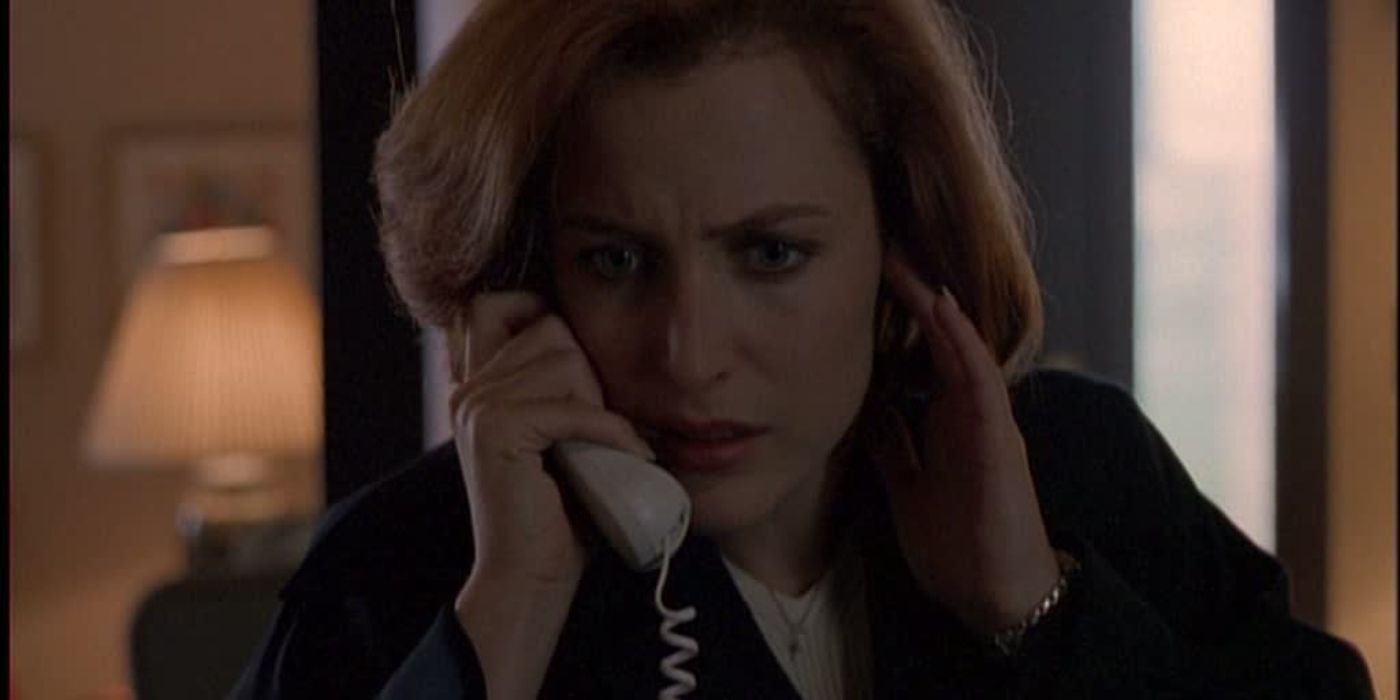The Big Picture
- Lena Headey’s portrayal of Cersei Lannister was iconic, and the character remained a nuanced and compelling one throughout the series.
- Cersei’s casting was vital for setting up key storylines; her complexity and influence on the plot demanded a skilled actress.
- While Gillian Anderson turned down the role of Cersei, Lena Headey’s performance made
Game of Thrones
a blockbuster hit.
Game of Thrones faced innumerable challenges within its first season, as the dense material of George R.R. Martin’s A Song of Ice and Fire novel series was challenging to translate into a compelling dramatic story. Beyond the efforts needed to explain the rules of Westeros to average viewers and pull off several major action sequences, the first season of Game of Thrones had to introduce fascinating, dynamic characters that audiences would be willing to invest in over a prolonged period of time. Few performances on Game of Thrones were as instantly iconic as Lena Headey‘s, even if the show’s writing may have failed her in the end. Headey’s performance remained one of the show’s most nuanced. But, as great as Headey was in the role, it was almost Gillian Anderson who was cast as Cersei Lannister.
Game Of Thrones
Nine noble families fight for control over the lands of Westeros, while an ancient enemy returns after being dormant for a millennia.
- Release Date
- April 17, 2011
- Creator
- David Benioff, D.B. Weiss
- Main Genre
- Drama
- Seasons
- 8
- Studio
- HBO
Casting Cersei Lannister Was Vital to ‘Game of Thrones’
While the series has its fair share of nasty and unlikeable villains, Cersei is perhaps the most complex character on Game of Thrones. Unlike her son, Prince Joffrey (Jack Gleeson), Cersei’s cruelty emerges in different ways. She takes a backseat in the public spotlight to her husband, King Robert Baratheon (Mark Addy), allowing his incompetence to speak for itself. Cersei’s most important work is conducted in the shadows, as she forges unlikely alliances in order to inflict significant suffering on her opponents. Cersei’s intelligence is perhaps only surpassed by her younger brother, Tyrion (Peter Dinklage), who lacks the capacity for cruelty that she has.
Considering how important her actions are for setting up The War of Five Kings during the initial seasons, casting Cersei was one of the most important decisions in Games of Thrones’ production. While she was certainly one of the most dangerous figures in the Westeros conflict, the audience is forced to sympathize with Cersei at some moments. She suffers abuse at the hands of her husband, Robert, and her brother, Jaime (Nikolaj Coster-Waldau). She is also forced to deal with the loss of several children, a public shaming at the hands of the High Sparrow (Jonathan Pryce), and the collapse of her family. Given that Cersei played a pivotal role in Game of Thrones until the very end, the actress cast needed to be completely immersed in both the story and world of Martin’s source material.
Casting a bigger name like Gillian Anderson would have made sense for HBO, as the series presented a major risk for the network. A fantasy drama program of Game of Thrones’ scale had never been attempted before by the network. It was unclear if the series would be a breakout hit beyond the core audience of book readers. While Anderson’s casting may have attracted some interest from X-Files fans interested in seeing her in another genre show, Headey ended up being the perfect actress for the part. After the series survived the difficult production of the original pilot, Game of Thrones became a cultural touchpoint and turned Headey into a household name. Her performance was among the show’s most acclaimed, and earned her five Primetime Emmy Award nominations for Best Supporting Actress in a Drama Series.
Why Gillian Andeson Turned down ‘Game of Thrones’
While the role certainly would have been a major boost to her career, Anderson turned down the opportunity to appear in Game of Thrones due to her concerns about the all-consuming nature of the shoot. Filming an extended television series, particularly one with such a sharp turnaround time like Game of Thrones, would have put a limit on the time that Anderson had to spend with her family. While she noted that the role would have been an exciting one, Anderson admitted that she could “justify spending that kind of time away from home” unless she had the opportunity to work with someone like Martin Scorsese. She admitted to turning down a lead role on Downton Abbey for similar reasons.
Given the state of Anderson’s career at the time that Game of Thrones was first entering production, it makes sense that she was hesitant about signing up for another major television project. After the initial run of The X-Files went off the air in 2002, Anderson had been pursuing several film projects in the hopes of transitioning her stardom to the big screen. Anderson was able to star in smaller projects like James Marsh’s political thriller Shadow Dancer and Gilles Paquet-Brenner’s adaptation of the Agatha Christie novel Crooked House. It’s unlikely that she would have been able to pursue these opportunities with the demanding Game of Thrones shoot.

Emilia Clarke Wasn’t the First Choice for Daenerys Targaryen in ‘Game of Thrones’
How do you say recast in Old Valyrian?
What Would ‘Game of Thrones’ Have Looked Like With Anderson?
While ultimately the right decision was made, the notion of Gillian Anderson as Cersei is nonetheless an intriguing one. Anderson would have been cast against type as a villain, as she is generally known for playing more heroic characters. It’s ironic that Anderson chose to turn down the role out of obligation to her children, as Cersei’s maternal instincts are one of her most defining characteristics. While she commits some of the most savage acts of violence in the entire series, Cersei claims to be acting on behalf of her children. And given Anderson’s talents at playing dynamic female characters, it would have been interesting to see her hone in on this element of Cersei’s personality.
While she may have missed out on the success of two highly successful, Emmy award-winning shows with Game of Thrones and Downton Abbey, Anderson eventually returned to television with a series of acclaimed roles. While the 2016 continuation of The X-Files was met with a cooler reception from fans of the series, Anderson earned immense acclaim for her riveting performances in the British crime series The Fall and the Thomas Harris adaptation Hannibal. Her incomparable performance as Prime Minister Margaret Thatcher in the fourth season of The Crown earned her a Primetime Emmy Award for Best Supporting Actress in a Drama Series.
Game of Thrones is streaming on Max in the U.S.
Watch on Max
Source link

